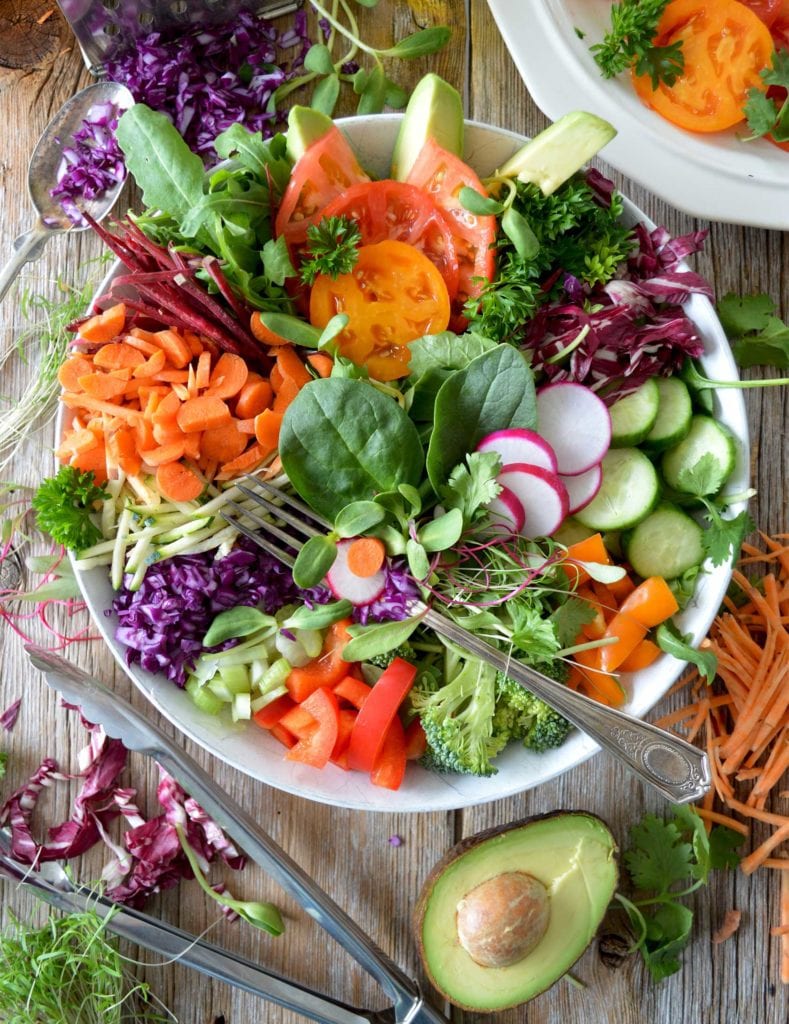Heart health … Prostate health: A unique partnership
Healthy eating plan helps decrease both health risks

There are no special foods to eat to prevent prostate cancer, but an overall healthy eating plan decreases the risk of prostate cancer, and tackles heart disease at the same time.
A healthy diet focuses on plant-based foods, explained Ashley Draviam, a board-certified specialist in oncology nutrition at Massachusetts General Hospital. That means lots of fruits and veggies, whole grains and healthy fats.

Ashley Draviam, board-certified specialist in oncology nutrition at Massachusetts General Hospital. PHOTO: Phil Draviam
Still, that’s a tough sell. Only one in 10 adults meets the federal fruit or vegetable recommendations, according to the Centers for Disease Control and Prevention. Instead of the 30 grams of recommended fiber every day, 15 grams is more the norm. As noted in the Dietary Guidelines 2015-2020, more than 60% of the U.S. population consumes too much sodium, saturated fats and added sugars.
Superfoods
The term superfood is more of a marketing term. The moniker was hatched to identify foods that are nutrient-dense and beneficial to one’s health. The Prostate Cancer Foundation cites several of these foods that can reduce the likelihood of prostate cancer and slow its progression. The key ingredients in most of these foods are called phytochemicals that give plant foods their color and taste … and their power. Phytochemicals help protect cells and DNA from damage that may lead to cancer.
Particularly noted are cruciferous vegetables like broccoli, cauliflower, cabbage and Brussels sprouts. Broccoli has been tagged the prostate superfood because of its potential to prevent cancer cell growth. Red and pink foods, like tomatoes and watermelon contain a phytochemical called lycopene, which can help decrease the risk of prostate cancer. Cook the tomatoes and hike the lycopene even more.
That cup of green tea does more than just hydrate you. It’s packed with several antioxidants that have been shown to inhibit tumor cell growth and invasion. Rounding out the list are berries and foods, such as salmon and sardines that are high in healthy fats called omega-3 fatty acids.
These foods may be part of a regular diet, but some less traditional foods are often overlooked.
Allium
Generally when you think of fruits and veggies, you picture vibrant colors like the red in peppers or green in spinach. Dietitians even suggest to choose colors of the rainbow. Onions and garlic don’t readily come to mind, but when it comes to prostate cancer, perhaps they should.
Allium vegetables — leeks, chives, scallions, onions and garlic — are considered more like seasonings or herbs to some people because of their distinct flavoring. Don’t let the bland coloring fool you. Those onions you add to soups or garlic to pasta sauce are more than flavor enhancers. They guard against inflammation and damage to DNA.
Soy
Soy is another food that tends to fly below the radar. The incidence of prostate cancer is highest in Western countries, and lowest in Asian countries, and soy foods may be part of the reason. Examples are tofu, edamame and soybeans. They might not excite your palate but men undergoing hormone therapy may have a different take. Hormone therapy blunts the effect of testosterone, the male hormone. That’s a good thing. Testosterone feeds the cancer cells. There’s a side effect, however. It can cause hot flashes. Soy helps ease the symptoms, explained Draviam.
Flaxseed
Flaxseed is another nutrient often overlooked. Although it is high in fiber, protein and omega-3 fatty acid, more significant is its impact on testosterone. Flaxseed is high in a compound called lignans that may cause a decrease in testosterone levels. Ground flaxseed is preferable, as whole flaxseed may not be absorbed. Sprinkle it over cereal, mix it with yogurt or toss into smoothies.
Calcium and Vitamin D
Calcium and vitamin D work in concert to increase bone strength, which is often compromised in prostate cancers that have metastasized or spread, or in men receiving hormone therapy for prostate cancer. Calcium should be generally limited to 1,500 mg a day, 500 of which can come from supplements, advised Draviam. A daily supplement of 1,000 to 2,000 IU a day of vitamin D may be recommended, since it is difficult to get sufficient vitamin D from foods. This is particularly important for African American men who generally have a deficit of vitamin D.
A synergistic approach
Add regular physical activity and weight control to healthy eating, and you’ve got a healthy threesome. Staying at a healthy weight reduces the risk of aggressive or advanced prostate cancer.
The good news is that you can choose the foods that suit your fancy, but it’s important to choose a variety of cancer-fighting plant-based foods, and not rely on supplements to get the nutrients you need. “Foods work synergistically,” explained Draviam. “When you isolate nutrients, you don’t see the same results. You don’t get all the benefits of a balanced diet.”
Incorporate healthful foods that fit your lifestyle. There are no “magic” foods, but some help prevent prostate cancer and keep you generally healthy.
“It doesn’t have to be that complicated,” she said.







